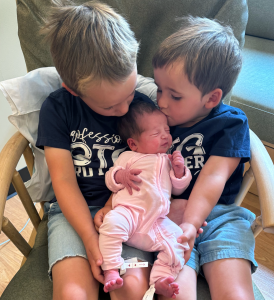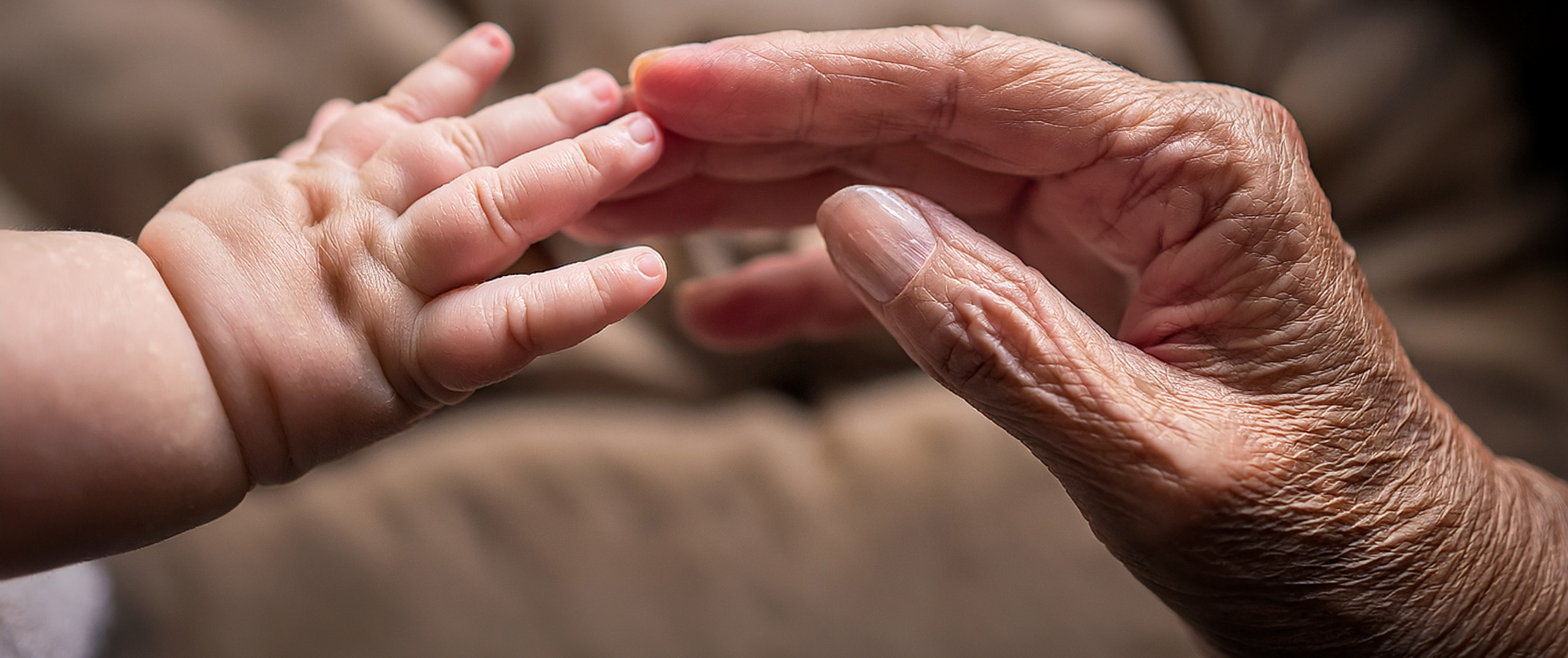We published no blog last month due to the untimely death of Joannie Barth, who coordinated my social media for 13 years. We are still bereft. This month, a pastor reflects on encounters with both the beginning and the end of life on the same day.
My newest grandchild emerged from the darkness of the womb on the third day of August, which fell on a Sunday. The people of my congregation gathered to share the journey of life, to sing hymns of praise, and to offer their prayers.
Near the end of the service a parade began to materialize. There were no marching bands or floats, no flag bearers, no one tossing candy. It was a parade of common folk, God’s people: the young and old, babies carried by parents, the elderly with canes or walkers, some lost in life, some lost in dementia, most worried about tomorrow. The bread and wine did little to subdue appetites, but words of grace were spoken, and the partakers found the courage to face another day.

Little Molly arrived just after midnight, squinted her eyes, gasped for oxygen, let out a borning cry, and then nestled against her mother’s breast. That touch assured her that she was not alone in this frightening foreign land.
After the second service I led a graveside gathering at the church’s columbarium for an old man I had the pleasure of knowing for the better part of 40 years. Later that afternoon I officiated at a Celebration of Life for the son of one of our members.

In a hospital a few hours south, two big brothers arrived to see their newborn sister. Sleep, cry, poop, eat, repeat; sleep, cry, poop, eat, repeat; Molly was settling into her new routine. This simple rhythm of survival will last for some time, possibly as long as 90 years from now. The sun waned low in the evening sky, marking the end of another day.
Hospital and Hospice
I am struck by the similarities between life’s beginning and its end—our Alpha and Omega moments of life on earth. The birthing room witnesses tense moments and intense pain, for the duration of difficult labor is impossible to predict. Life and death hang in the balance until finally a baby emerges and is embraced in a circle of love. There are tears of joy and tears of relief, sheer exhaustion and exhilaration. To behold those tiny hands and feet is to behold a miracle, the touch of God.
In the hospice room a tired family encircles the bed, amid tense moments and intense pain. The duration of this difficult labor, too, is impossible to predict. The final farewell could come to a swift conclusion, or it may continue for days, even weeks. Life and death hang in the balance. Finally, when the labor ceases, the weak and weary loved one leaves this world and is reborn to eternal life.

Those who are left behind shed tears of grief and tears of relief. Exhaustion sets in, interrupted occasionally by a burst of adrenalin. To behold the lifeless clay of our loved one is to behold a mystery beyond our understanding. How could they be with us one moment and gone the next? Clearly this body no longer holds them. In a moment, they are set free from time, from pain, and from a world they loved. Like a mist, they vanish. On the other side of this womb called earth, a welcoming party awaits and heaven rejoices.
I am struck by the symmetry of God’s created order as well as by the similarities of our alpha and omega moments on earth.

In those first weeks and in our last hours we are totally dependent. Little Molly must rely on others to change her diapers; so too for the dying. Little Molly relies on others for nourishment; so too for the dying. In the beginning and in the end, control is hard to come by and we must depend on those around us. In the years between two and ninety we live with the illusion of independence and autonomy. Yet even in those years, control is an illusion.
In truth, we are vulnerable on every front. A fleck of plaque can cause a stroke, a spot of cancer can determine our future, a mis-swallowed bite of meat can end life. Control is an illusion.
The reality is that from the very beginning we were born to leave. We were never meant to stay.

Pastor Jim Lindus, Trinity Lutheran Church, Freeland, Washington
(One beggar, telling another beggar where to find bread)


Leave a Comment